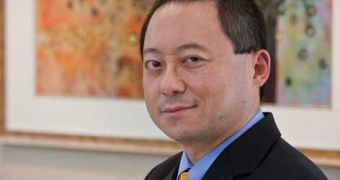The deadliest cancer currently targeted by scientists is the non-small cell lung cancer, and the University of California Irvine has made some big steps in targeted drug therapy.
Dr. Edward Nelson, UCI’s interim chief of hematology/oncology says that “the advances in clinical treatment of lung cancer over the last three to five years are phenomenal.
“It’s comparable to breast cancer: thirty years ago, we had little to offer patients other than surgery and radiation, and now there are numerous therapies that can profoundly increase survival.”
He adds that cancer tumors are constantly changing and mutating so there in not a single treatment that works for two or more types of cancer.
“Even tumors that look exactly the same may not have the same set of mutations that make them grow,” he says, and “the key is finding the genetic pathways that control the tumor’s growth and having agents targeted to those pathways that can block a tumor cell’s ability to proliferate.”
Lung cancer is deadlier that breast, colorectal, pancreatic and prostate cancer combined, and it kills every year, almost 160,000 Americans.
It has a very high incidence rate and a very low five-year survival rate, according to statistics, still, progresses are made every day.
A pioneer and a real fighter for finding a cure, is Dr. Ignatius Ou, from the UC Irvine’s Chao Family Comprehensive Cancer Center.
He is currently supervising several clinical trials that target genetic mutations in non-small cell lung cancer tumors, which are very common among patients who have never smoked.
Because UCI has such performances, it is one of the seven centers that are studying whether a compound like the drug crizotinib, for example, can slow down, stop or reverse growth in advanced non-small cell lung cancer tumors.
Crizotinib should target the genetic mutation that causes the uncontrolled division of the tumor, and the study was conducted on 82 participants, aged from 25 to 78, with 76 percent of them nonsmokers, all tested positive for a mutation in the anaplastic lymphoma kinase gene.
The results showed that in 57 percent of the cases, the tumors disappeared or shranked, and ceased growing in 33 percent of patients.
This is very encouraging as the response rate to current therapies is of 15 percent only.
Ou, who has a PhD in cellular and molecular biology, says that “for the majority of patients, the treatment right now is chemotherapy plus targeted therapy in those who are eligible.
“In the future, with the advance of personalized medicine, we hope to be able to identify specific genetic changes in lung cancer and treat patients with specific inhibitors that can improve survival rates and quality of life.”
This was Phase 1 of the study, sponsored by the pharmaceutical company Pfizer, and people are now being enrolled for Phase 2 and 3 trials for crizotinib.
Nelson said that “Dr. Ou is an example of a dedicated scientist and outstanding physician who is working hard to find ways to improve the lives of cancer patients.”
There are over a dozen lung cancer trials currently being conducted at UCI, and similar work is being done with acute leukemia and colorectal, pancreatic and liver cancers.

 14 DAY TRIAL //
14 DAY TRIAL //